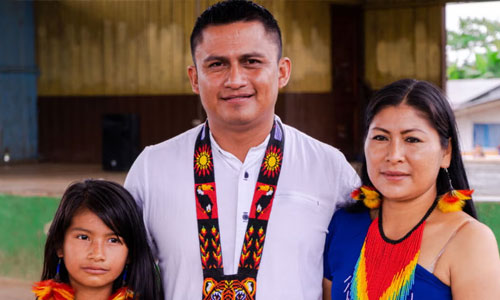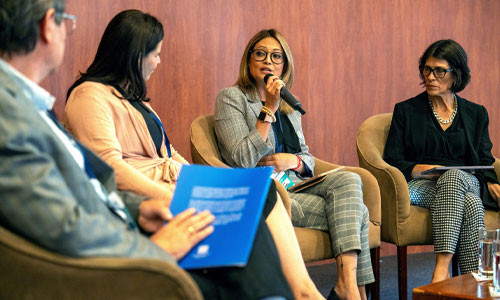By fusing local insight with global expertise, the Ecuador Diagnostic now serves as a credible, forward-looking roadmap to strengthen national resilience through inclusive insurance and risk finance.
— Ecuador —
inclusive. resilient. actionable.














Strengthening Financial Resilience in Ecuador: Finalizing the Country Diagnostic on Inclusive Insurance and Risk Finance
"Insurance and risk financing are not only financial instruments—they are tools of empowerment that help societies absorb shocks and invest in a safer future."
— United Nations Development Programme (UNDP), Insurance and Risk Finance Facility
Challenge
Ecuador faces a convergence of vulnerabilities that severely constrain its resilience to shocks—both economic and climatic. Despite its dollarized economy and oil-exporting status, the country’s overreliance on primary exports, fragmented financial inclusion, and exposure to seismic and climate-induced disasters have heightened fiscal stress and increased inequality. Nearly 25% of the population lives in income poverty, with rural areas disproportionately affected.
In this context, the UNDP’s Insurance and Risk Finance Facility (IRFF) launched a Country Diagnostic to assess Ecuador’s readiness and gaps in disaster risk financing and inclusive insurance. The diagnostic, initially prepared by local experts, required an independent international review to ensure its strategic robustness and policy relevance prior to formal adoption.
Strategy
To validate and enhance the diagnostic, UNDP engaged GG International, appointing its Insurance, Finance and Risk team leader, Russell Leith, to conduct a comprehensive expert review. He was supported by international legal specialist Shaan Stevens, who focused on ensuring regulatory coherence and international best practice alignment.
Their intervention aimed to:
- Test and refine the findings of the locally drafted Country Diagnostic;
- Identify critical data gaps, inconsistencies, and opportunities for improvement in the analysis;
- Validate policy recommendations on sovereign risk finance, microinsurance, and institutional frameworks; and
- Incorporate international insights into Ecuador’s unique risk financing context, particularly in relation to its political and legal structures.
The review applied a methodology combining:
- In-depth analysis of national laws, fiscal tools, and institutional arrangements;
- Comparative insights from other Latin American and global contexts; and
- Engagement with key datasets, disaster histories, and financing mechanisms outlined in the draft.
Transformation
The review strengthened the Diagnostic Report by clarifying conceptual linkages between macro-fiscal risk, inclusive insurance systems, and governance reform needs. It brought attention to Ecuador’s institutional fragmentation in disaster response, the absence of an operational sovereign risk finance strategy, and the limited reach of current insurance offerings—particularly for vulnerable and informal sectors.
The final recommendations endorsed by GG International emphasized:
- Establishing a cross-ministerial Disaster Risk Finance Strategy, with legal authority and budget alignment;
- Expanding the reach of inclusive insurance via digital channels and regulatory reform;
- Piloting sovereign parametric insurance and municipal disaster funds modeled on Quito’s subnational initiative; and
- Integrating gender-responsive measures to address the economic impact of disasters on women.
The revised and finalized Country Diagnostic was submitted to the UNDP Insurance and Risk Finance Facility as a cornerstone input for guiding the Ecuadorian Government’s next phase of policy development.